Às vezes, as pessoas
mais talentosas são também as mais perturbadas. Grandes artistas raramente têm
vida fácil. Em “Humoresque”, o remake de 1946 de um filme mudo de 1920, o
violinista Paul aprende, do jeito mais difícil, duas lições importantes. A
primeira é que você precisa pagar um preço para ser quem está destinado a ser. A
segunda é que mães sempre têm razão.
Sometimes, the most gifted
people are also the most disturbed. Great artists rarely have an easy life. In
“Humoresque”, the 1946 remake of a 1920 silent, violinist Paul learns the hard
way two important lessons. The first one is that you must pay a price to be
what you're destined to be. And the second is that mother always knows best.
Tudo
começa com um flashback. É o aniversário do pequeno Paul Boray (Bobby Blake), e seu pai o deixa
escolher algum presente barato. Paul escolhe um violino, para a amargura do
pai: além de ser caro (OITO DÓLARES!), o violino pode ser apenas um brinquedo
que Paul vai esquecer logo. O pai não compra o instrumento, então a mãe, com
lágrimas nos olhos e esperançosa pelo filho, vai à loja e compra o violino.
Everything starts with a
flashback. It is young Paul Boray’s (Bobby Blake) birthday, and his father will
let him choose a cheap gift. Paul chooses a violin, to his father’s
disapproval: besides being expensive (EIGHT DOLLARS!), the violin can be just a
fad for Paul. The father doesn’t buy the instrument, so the mother, with tears
in her eyes and hope in her son, goes to the shop and buys the violin.
E isso compensa. Paul
pratica o tempo todo, e prova que a prática leva à perfeição: ele logo se torna
um virtuoso que inclusive é rápido demais para ser acompanhado por uma
orquestra. Ele tem talento e sabe disso. Infelizmente, as coisas não são
fáceis. É a Grande Depressão, e o pai de Paul acredita que ele não contribui
para a renda familiar sendo músico. Veja como o preconceito contra os artistas
sempre foi o mesmo!
And it pays off. Paul
practices all the time, and proves that practice makes perfection: he is soon a
young virtuoso who even out-plays a whole orchestra. He has talent and he knows
it. Unfortunately, things are not easy. It’s the Depression, and Paul’s father
believes he doesn’t contribute to the family’s survival by being a musician.
You can see that the prejudice against artists has always been the same!
Chateado, Paul (John
Garfield) se junta ao amigo Sid Jeffers (Oscar Levant), um pianista. Numa
noite, eles tocam na festa dos Wright, um famoso e elegante sarau. Paul é
tratado como inferior por Helen Wright (Joan Crawford), mas ele não abaixa a
cabeça: ele a insulta na mesma moeda. E assim fica claro: Paul e Helen foram
feitos um para o outro – ou será que não?
Hurt, Paul (John Garfield)
joins his friend Sid Jeffers (Oscar Levant), who is a struggling pianist. One
night, they play at the Wright’s party, a fancy and famous reception. Paul is
treated poorly by Helen Wright (Joan Crawford), but he doesn’t cower: he fires
insults right back at her. And then you know: Paul and Helen are a match made
in heaven – or maybe hell?
Em pouco tempo está
pagando um agente para Paul e bancando seus concertos. Ele pode ter uma dívida
com ela, mas ao mesmo tempo se sente atraído pela benfeitora. Isto parte o
coração de Gina (Joan Chandler). Ela é uma musicista que estudou com Paul e se
apaixonou por ele. A mãe de Paul, Esther (Ruth Nelson), não quer que seu filho
se relacione com uma mulher casada.
Soon Helen is paying for his
agent and his concerts. He doesn’t have only a debt with her, but there is also
sexual attraction. This breaks Gina’s (Joan Chandler) heart. Gina is a fellow
musician who studied with Paul and fell in love with him. Paul’s mother, Esther
(Ruth Nelson), fears for her son’s relationship to a married woman.
Paul se mostra
insatisfeito por ser “patrocinado por uma mulher” que também tem problemas com
a bebida. Helen não vai disputar um espaço no coração de Paul com Gina, mas sim
com a maior e mais profunda paixão dele: a música. Ela não parece uma mulher
que sofreria e faria sacrifícios para que o homem amado pudesse alcançar o auge
de seu potencial. Mesmo assim, esta Joan Crawford sofredora é uma personagem
que encontramos em muitos de seus filmes, com destaque para “Alma em Suplício”
(1945).
Paul is not pleased to be “sponsored
by a woman” who also has a drinking problem. Helen is not ready to dispute a
place in Paul’s heart not with Gina, but with his biggest and deepest passion:
music. She doesn’t look like a woman who would suffer and sacrifice herself so
the man she loves can fulfill his potential. Yet, this suffering Joan Crawford
is a character we find in so many of her films, most notably “Mildred Pierce”
(1945).
Na cena da festa, uma
jovem bêbada pergunta a Paul se ele é um lutador. De fato, é mais fácil
imaginar John Garfield interpretando um homem durão – ele não parece adequado
para o papel de um sensível violinista. Mas é justamente esta estranha mistura
de força e talento com sensibilidade que levam Paul ao sucesso.
In the party scene, a tipsy
young woman asks Paul if he is a prizefighter. Indeed, it’s easier to imagine
John Garfield playing a tough man – he doesn’t seem suitable for the role of a
sensitive violinist. But it is this odd mix of toughness and sensitive talent
that makes Paul successful.
Em geral, eu presto
mais atenção ao roteiro que aos outros aspectos técnicos do filme, mas devo
destacar como é excelente a edição em “Acordes do Coração”. Uma linda sequência
de imagens mostra como Nova York era frenética mesmo durante a Grande
Depressão. Muitos minutos depois, outra montagem nos leva junto com Paul por
uma turnê pelos Estados Unidos. E tudo com música clássica
na trilha sonora!
I often pay more attention
to the storytelling than to the other technical aspects of a film, but I must
point out how great the editing in “Humoresque” is. A wonderful sequence of
images show how frantic New York was even during the Depression. Many minutes
later, another sequence brings us along for Paul’s violin tour across America. All this with a classic soundtrack.
Oscar Levant mostra
aqui mais talento para a atuação e ironia que em “Sinfonia de Paris” (1951).
Segundo relatos, ele improvisou a maioria de suas falas bem-humoradas. Outra
ótima performance é de Ruth Nelson como a mãe zelosa. O jovem ator Bobby Blake,
que interpretou Paul quando criança, tinha uma boa história de bastidores para
contar: quando ele não conseguiu gravar uma cena como combinado, John Garfield
esvaziou o set e dirigiu ele mesmo a cena de Bobby, desta vez com perfeição.
Oscar Levant shows more
acting range and mordacity here than in “An American in Paris” (1951). He
reportedly improvised most of his humorous and ironic lines. Another
outstanding performance is the one by Ruth Nelson, as the zealous mother. Young
actor Bobby Blake, who plays Paul as a child, had a good backstage story to
tell: when he couldn't get a scene right, John Garfield cleared the set and
directed Bobby's scene himself, this time with perfection.
“Acordes do Coração” é
um belo melodrama que certamente agradará aos fãs de música clássica. John
Garfield pode ser o protagonista, mas Joan Crawford é, como de costume, a
melhor em cena – incluindo a dolorosa cena do telefone.
“Humoresque” is a beautiful
melodrama that will certainly please classical music aficionados. John Garfield
may be the lead, but Joan Crawford is, as often, the best in scene – including
the telephone scene, so painful to watch.
This is my contribution to the John Garfield: The
Original Rebel blogathon, hosted by Laura at Phyllis Loves Classic Movies.
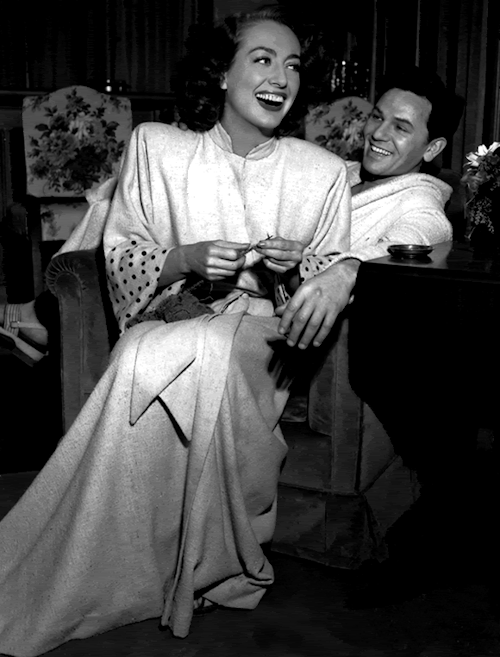
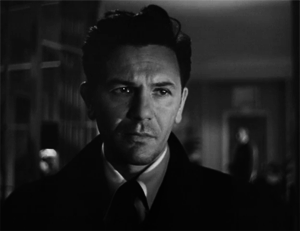
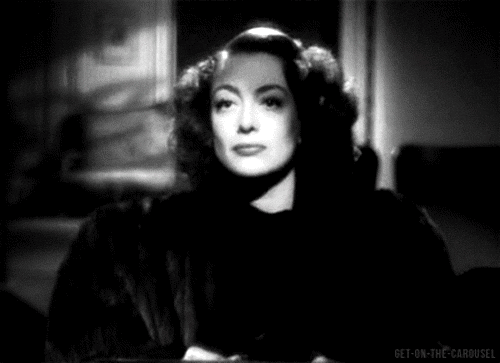
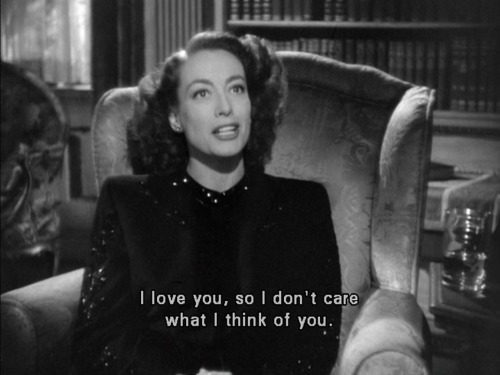
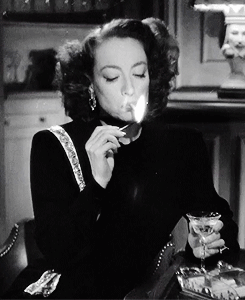
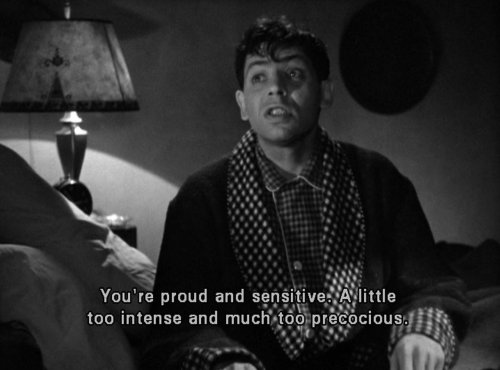

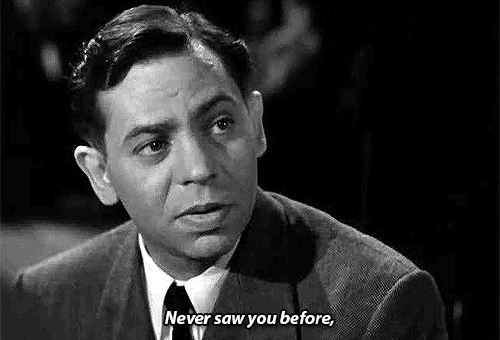

Hi Le--
ReplyDeleteGreat review! The idea of Joan Crawford and John Garfield paired up romantically is definitely different. Crawford liked dominating, so she would have gotten a run for her money with Garfield. Looks like a terrific film--I'm sold. :-)
Le, I loved your review of this film. Even though I haven't seen this one yet (I know, I know, I need to see it), I think I would appreciate the same things you pointed out. In fact, I can't wait to see it to compare notes! :)
ReplyDeleteI'm intrigued about the idea of Garfield taking the time to direct young Bobby Blake. Something that will be in my mind when I watch Humoresque. So many fascinating films from Warners during this era. And you chose a perfect one to highlight.
ReplyDeleteI didn't know this was a remake! I agree, Garfield is definitely not who you would think of to play a violinist, but he turns out to be perfect for the role. Crawford is great too.
ReplyDeleteThanks for participating in this blogathon with such a great film!!